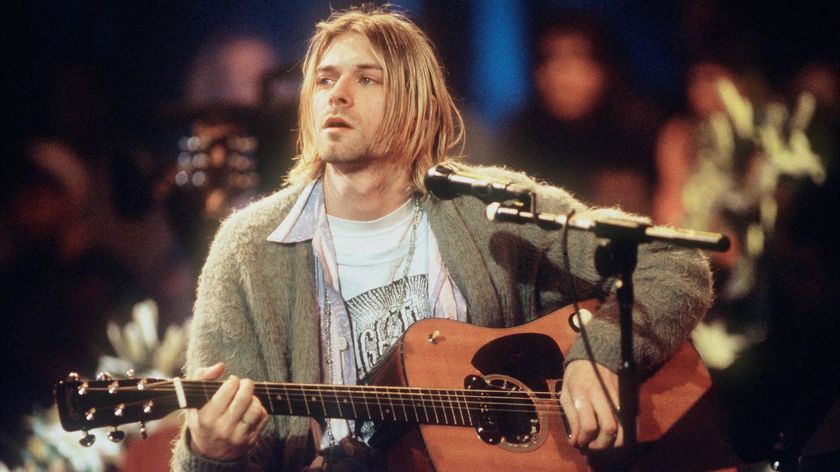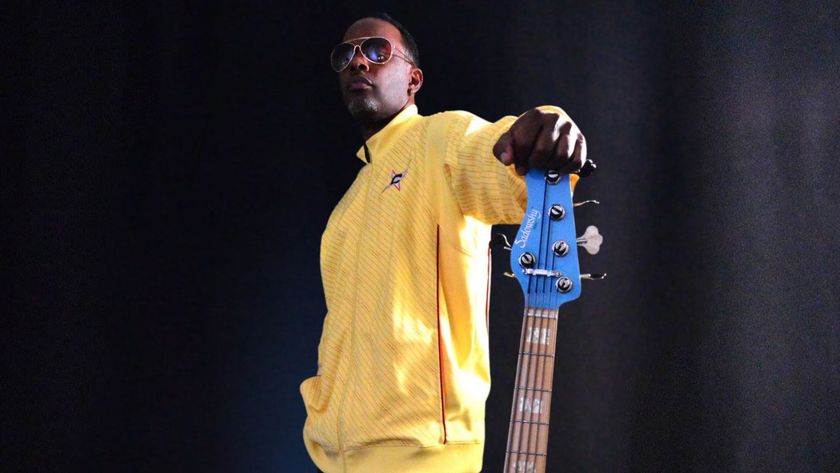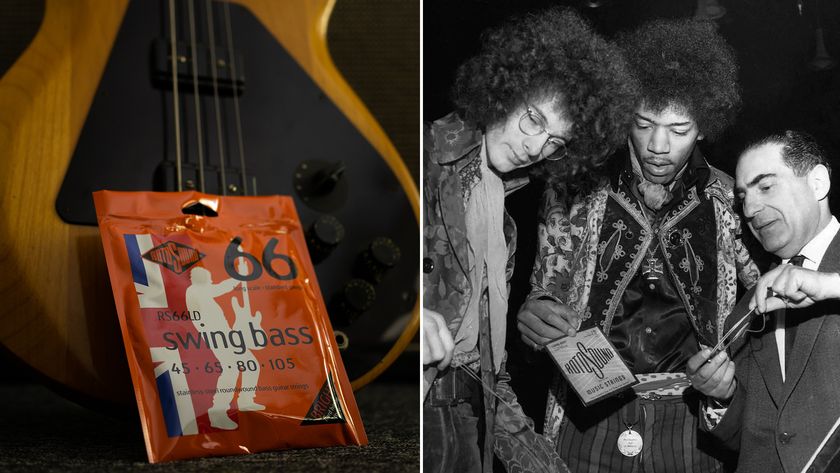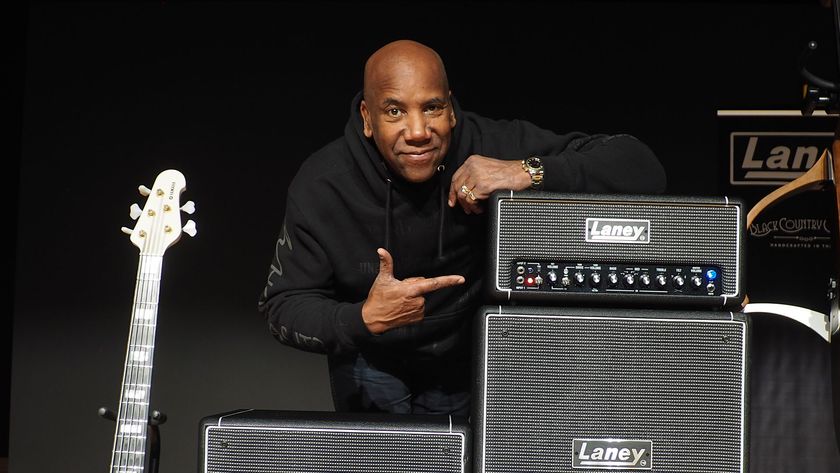Eliza & The Delusionals: “This album was such a cathartic outlet – and realistically, the only one we had”
On their debut album, Eliza & The Delusionals reckon with the chaos of the present by embracing their pasts. Australian Guitar joins them for a trip down memory lane
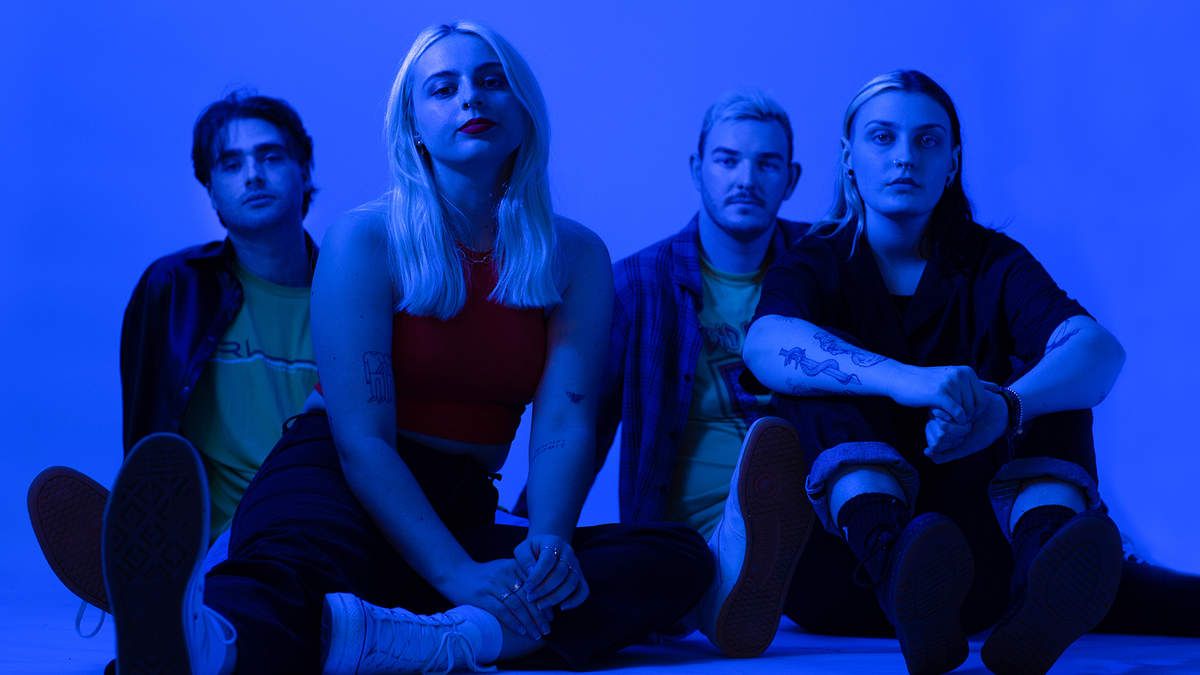
Now And Then is an apt title for Eliza & The Delusionals’ debut album, blending the shimmer and pomp of modern-day production with the bubblegum blitheness of ‘90s indie-pop. Channeling cassette-tape classics like The Blue Nile, The Cranberries and Alanis Morissette, Eliza Klatt and co. bring the Limewire’d playlists of their youth into 2022 with a keen ear for the crisp and the cool – thanks in no short part to the soul-warming strums of guitarists Kurt Skuse and Tex Martin.
Most of Now And Then came to life in Skuse and Klatt’s home studio, but that wasn’t the plan: since their breakout in the mid-2010s, Eliza & The Delusionals have become a staple of the North American indie circuit, and before the pandemic hit, they were eyeing off a permanent relocation to LA. Alas, the world had other plans, and the band’s debut grew to become more of a homely affair.
But it was all the better for it: as Klatt said in announcing the album, it “was the best thing to come out of the pandemic for us. We had just dealt with a huge loss of all of our touring in America, and when we got back to Australia we both were feeling quite lost and sad. We took the opportunity to build a studio at home and bunker down and turn all of the feelings that we had been experiencing for the past two years into songs.”
With the record high on our shortlists for Album Of The Year, we caught up with Klatt and Skuse to dig a little deeper into the story behind Now And Then.
We can’t talk about this record without touching on those big, bright, soaring ‘90s pop-rock vibes. What is it about that nostalgic flair that really butters your muffin?
Eliza Klatt: It kind of happened naturally for us, because we grew up listening to so many bands from that time period. I think they’re subconsciously our favourite styles of guitar playing and tones, and we naturally lean towards that sort of thing. It’s always a hard question about making it our own, because we don’t really think too much about it – it kind of just comes to life with our songwriting and our preferences on production!
The tonal palate on this record is magical – it hits this stunning sweet spot between these glittery, synthy dream-pop moods and this grungy, dirty indie-rock flair. How did you find that perfect balance?
Klatt: When we were demoing for the record, we knew we wanted to do something different with our sound. Kurt has a strong love for synthesisers, which is something I’d personally never really messed around with, so I think having that aspect in the writing and demoing process was really cool. It was a whole new thing we could use to create textures and melodies with, instead of just the guitar. We still wanted to stay true to our big guitar sounds in some form, but adding the synth in and using it for some of those underlying melodies, it was really refreshing and brought something new to our sound for sure.
How did you want this record to build on what you’d established with the Objective Reality EP?
Klatt: It’s kind of weird because [that EP] was such a turning point for us, but I feel like we didn’t get to really experience its release because it came out at the beginning of the pandemic, and the songs were written a few years prior to recording it – so I think we were honestly just ready to move on.
Get The Pick Newsletter
All the latest guitar news, interviews, lessons, reviews, deals and more, direct to your inbox!
Now And Then was also a big collaboration between myself and Kurt, which was new, so I think it was always going to sound different, and like the next progression or era of Eliza & The Delusionals. Our headspaces were also so different to where we were when the EP was written and recorded, so I think the album was very distant from it.
This record has been described as “the perfect soundtrack to [E&TD’s] coming-of-age period”. How did you endeavour to condense your halcyon days into one all-encompassing, 40-minute musical journal?
Kurt Skuse: It was honestly just a culmination of different emotions splayed over a two-to-three year period. Eliza and I had been writing and knew we wanted to do an album, but didn’t quite know the timeline as we had a bunch of touring [lined up across] the USA. It wasn’t until the pandemic hit and we were forced to come home that reality started to set in.
We were all struggling mentally – quite a lot, to be truthful. The silver lining through the shit was that this was ultimately where the album was born; the overall concepts, themes and aesthetics really developed in this time, as we immersed ourselves into the writing process and sunk our teeth into the idea of a nostalgic escape. Lots of reflection in this time allowed us to not have to sit still and watch the world burn, and really shaped how the album came to be.
How did you find that Now And Then offered you a cathartic outlet?
Skuse: Speaking truthfully, it’s probably not until now that I can look back on the last few years and reflect on what we did without hating the thought of it. It was such a rough time, mentally, the whole world was burning down and everything felt so bleak. I was extremely lucky to have Eliza to help me through in that period of time.
The album itself was such an outlet – and realistically, the only one we had at the time – which is why I think it feels very personal. We set out to create a world that we felt comfortable in; somewhere we could escape, that would take us back in time to certain points of our lives, for no other reason than because it felt right and gave us some form of solace. Now And Then literally runs in chronological order of the events Eliza and I have been through growing up, all the way up to the closing track, ‘Now And Then’, which pretty much summed up life for us at that specific time.
So you spilt the recording between Airlock Studios, Konstantin’s joint and your home studio. Did you find those sessions – and the material that came out of them – to be particularly unique?
Klatt: 95 percent of the record was written in our home studio, so I think a big part of the feeling and vibe was initiated there. I think it was because, like most people at the time, we were forced to stay home. We kind of forgot about the outside world. We were submerged in feelings and inspired by memories in that studio. I love that we did all of the recording at Kon’s studio, because it felt refreshing to be out of our house and creating in a different musical space.
Skuse: Being able to jump into Kon’s space is always great – he really is the best, and Eliza and I always feel super inspired in his presence. That’s where we did most of the guitars and vocals. Once we knew we were going to do the album in Australia with Kon, we knew we would being using Airlock to track drums: Ian Haug, who owns the studio, has always made us feel welcome, and at this stage in our career it really does feel like a home away from home.

Ellie Robinson is an Australian writer, editor and dog enthusiast with a keen ear for pop-rock and a keen tongue for actual Pop Rocks. Her bylines include music rag staples like NME, BLUNT, Mixdown and, of course, Australian Guitar (where she also serves as Editor-at-Large), but also less expected fare like TV Soap and Snowboarding Australia. Her go-to guitar is a Fender Player Tele, which, controversially, she only picked up after she'd joined the team at Australian Guitar. Before then, Ellie was a keyboardist – thankfully, the AG crew helped her see the light…
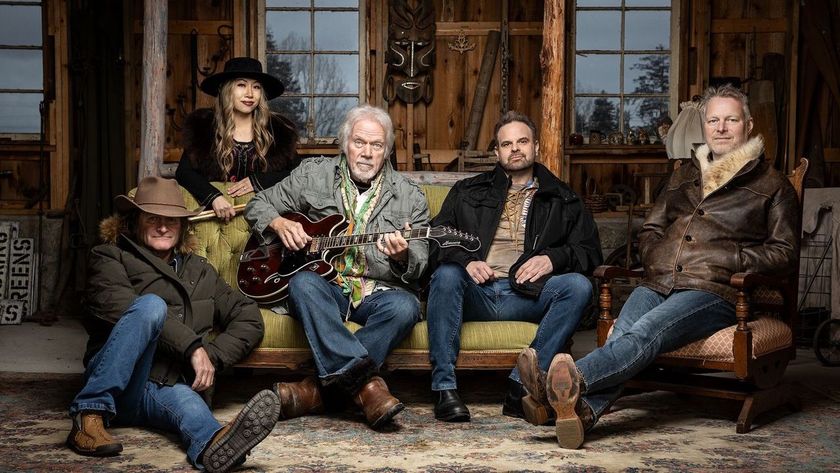
"The BTO sound is BACK!!" Bachman-Turner Overdrive release first new material in over 25 years – and it features a Neil Young guitar solo
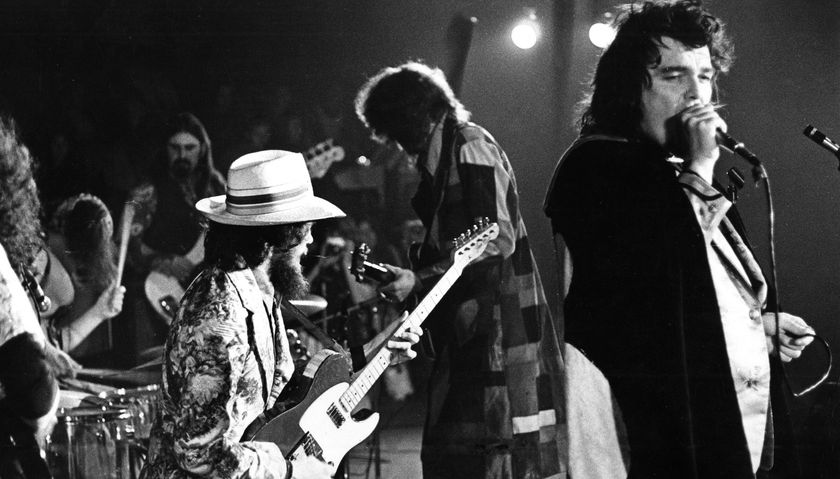
“He would beat the crap out of the guitar. The result can best be described as Jackson Pollock trying to play like John Lee Hooker”: Aggressively bizarre, Captain Beefheart's Trout Mask Replica remains one of the craziest guitar-driven albums ever made
